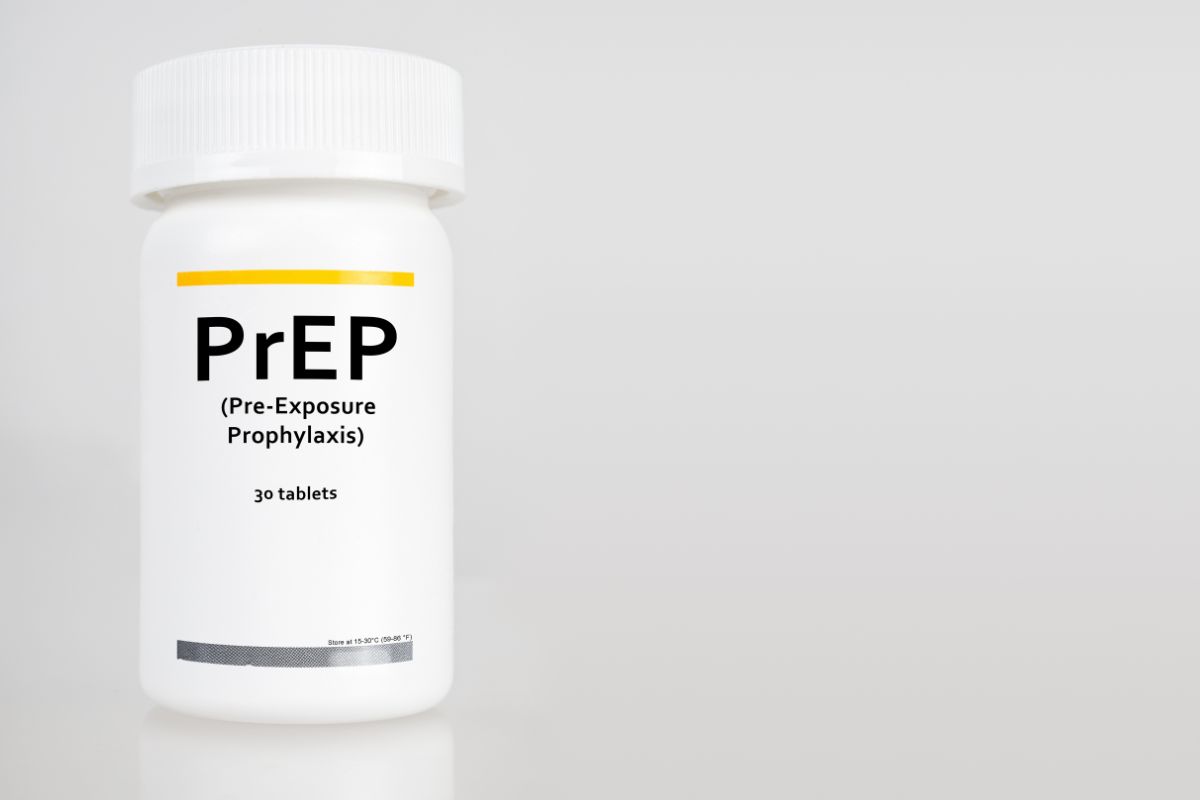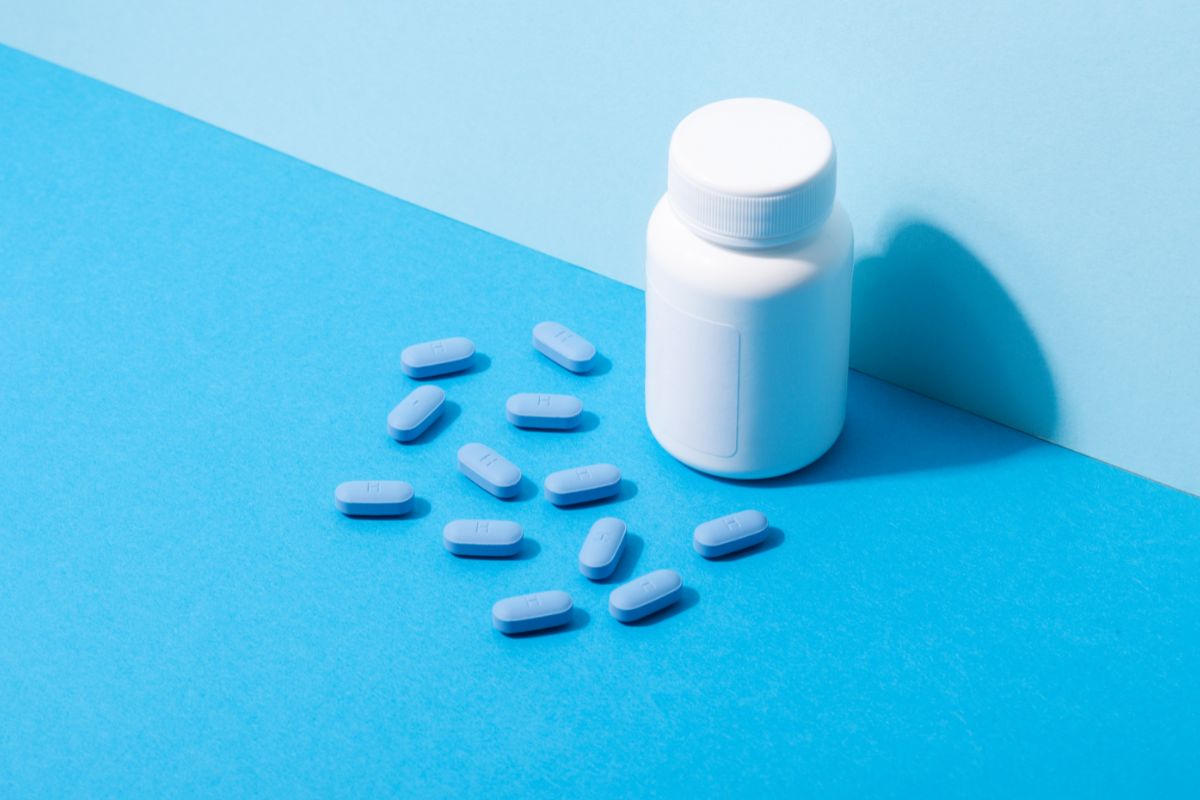HIV is a virus that attacks the immune system and causes AIDS and is an issue that impacts sufferers across the world.
As medical technology has continued to grow and evolve, there are a number of scientists, doctors, and health experts working on a potential solution to this global illness – and this has included the development of new drugs and medications designed to reduce the risk of contracting HIV.

To better understand this drug – known as PrEP – we will take a closer look at how it works, how it can help, and the information that you need to know.
What Is HIV?
HIV stands for human immunodeficiency virus and is one of the most common sexually transmitted infections worldwide.
There are over 33 million people living with HIV/AIDS globally, and more than 2.1 million new cases are diagnosed every year.
HIV is mostly spread via unprotected sexual contact with an infected person, blood transfusions, contaminated needles and syringes, and mother-to-child transmission.
People who have been exposed to HIV are at high risk of becoming infected.
The World Health Organisation estimates that approximately 1 in every 100 adults aged 15 to 49 years old is currently living with HIV.
In recent years, there has been a major drive in the medical community to come up with treatments, medications, and therapies to help tackle HIV and offer a new way to sufferers – and one of the most successful options to arise is PrEP.
What Is PrEP?
PrEP stands for pre-exposure prophylaxis and offers individuals a way of protecting themselves against HIV by taking medication (see also ‘Best HIV Medication & Recommended Treatments‘) before they come into contact with the virus.
This could be through sex or sharing needles while using intravenous drugs.
PrEP was developed by the National Institutes of Health (NIH) in 2012 where researchers have been investigating ways to prevent people from becoming infected with HIV.
The idea behind PrEP is to give someone who does not already have HIV a way to protect themselves without having to change their sexual habits or use condoms every time they engage in sexual activity.
How Does PrEP Work?
The first step in understanding how PrEP (see also ‘Can Alcohol Affect PrEP? All You Need To Know‘) works begins with what happens when you get exposed to HIV.
When your body comes into contact with the virus, your immune system responds by producing antibodies that attack the virus.
These antibodies then travel throughout the body until they find the virus and attach it to it.
Once attached, these antibodies work together with other white blood cells to destroy the virus.
If the virus manages to enter the bloodstream, it travels around the body and infects different types of cells including T-cells, macrophages, and dendritic cells.
The next step involves the production of more antibodies, but this time they are produced by B-cells.
The antibodies are now able to identify and target the virus so that they can kill it.
The process takes place over several days and once the virus is destroyed, the antibodies remain in the body for up to two years.
What Are The Advantages Of Taking PrEP?
The main advantage of taking PrEP is that it protects you against contracting HIV, and this makes it the perfect choice for those who are having sex with a partner they know to be infected, or who is having causal sex where the health status of their partner is uncertain.
It also helps if you are injecting drugs since you do not want to share contaminated equipment such as needles.
There are two main options to take PrEP: daily pills, or regular injections.
Both offer protection, although the injection option may be preferred due to its convenience, as it eliminates the need to remember to take a pill each day.
What Are The Disadvantages Of Taking PrEP?

There are some disadvantages associated with taking PrEP.
One of the biggest concerns is that if you opt for the daily pill format, you must remember to take the medication on a daily basis – if you tend to be forgetful, then the injection may be a better option.
As a rule, taking PrEP has relatively few side effects (see also ‘What Are The Side Effects Of PrEP?‘), but there are some risks involved.
For example, if you are allergic to any medications, then you should inform your doctor about this before starting treatment.
You should also tell your doctor if you are pregnant or breastfeeding, as certain medicines used to treat HIV cannot cross the placenta or pass through breast milk.
One of the main issues that can come with PrEP is a risk of weight loss; however, this is usually temporary and will only last for a short period of time, but can be dangerous if not monitored.
If you decide to start taking PrEP, you will need to discuss all of the possible benefits and risks with your doctor, and make sure that they agree that it is right for you before proceeding.
Your doctor will also be able to oversee your treatment plan and spot any issues straight away.
Is PrEP Safe And Effective In Combination With Other Medications?
PrEP is safe to combine with other treatments for HIV.
However, combining PrEP with antiretroviral therapy (ART), which includes antiretrovirals, protease inhibitors, and integrase inhibitors, increases the risk of liver problems.
This is because ART causes inflammation in the liver, which can lead to scarring and damage.
PrEP is also safe to use in combination with other forms of contraception, such as condoms, birth control pills, implants, and injectable contraceptives, and it is important to remember to use condoms when having sex, even if you are taking PrEP.
How Long Does PrEP Take To Work?
The effectiveness of PrEP varies – for anal sex, PrEP will offer maximum protection from HIV after around 7 days, while protection for injection drug use and vaginal sex can take 21 days to fully develop.
It is crucial that you take your medication regularly and exactly as prescribed by your doctor or medical practitioner, or you risk negating the benefits and contracting HIV.
Final Thoughts
If you are at high risk of being exposed to HIV, then PrEP (see also ‘Do You Need To Take Prep When Your Partner Is Undetectable?‘) is an effective way to protect yourself from acquiring the virus and helps to protect both you and your partner.
Over time, there is hope that the treatment will be able to take the first steps in eradicating the virus, and this could be the start of that journey.
- Understanding Male Reproductive Health: A Complete Guide - February 2, 2025
- Simple Healthy Skin Habits for Radiant Skin - December 6, 2024
- Unlocking the Connection Between Nutrition and Mental Health - December 3, 2024








